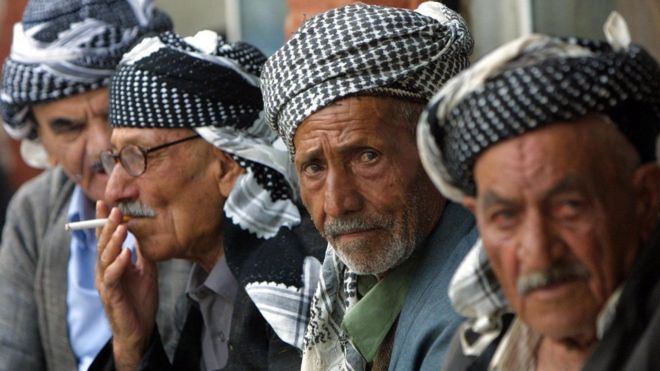A Syria Question

The Kurds are an ethnic minority group who live in several Middle Eastern countries such as Iraq and Syria but have no state of their own. Source: The BBC
A second front has opened up in President Trump’s showdown with Congress. Only this time it isn’t House Democrats responding to the administration’s decision to stonewall impeachment inquiry proceedings. Instead it’s a bipartisan group led by Republican senators like Lindsey Graham—a vocal ally of the president. Their concern? President Trump’s decision to withdraw military support to the Kurds in Syria.
The Kurds are an ethnic minority group in Syria and surrounding countries. According to the BBC, the Kurds have been a strong ally in the fight against ISIS. Encroached on by the rising ISIS caliphate, the Kurds found themselves in a complex civil war with involvement from ISIS militants, the Russian backed Syrian government, US backed rebels, and the Turkish government led by the authoritarian president Erdogan who is dealing with a Syrian refugee crisis as well as efforts to expand his power and Turkey’s territory.
With ISIS all but defeated, President Trump’s unexpected decision to abandon the Kurds in Syria leaves them trapped in conflict between the Russian backed Syrian government on one side and the advancing Turkish military on the other. The loudest push back has been from some of Trump’s closest congressional allies such as Senator Lindsay Graham and Congresswoman Liz Cheney, as well as some rising stars within the party such as Trump appointee and former UN Ambassador Nikki Haley, some of whom have argued that the decision could lead to ISIS resurgence, the death of thousands of Kurdish allies, and the weakening of America’s place in the world for decades to come. As unseemly as it may be, there are also potential political consequences for the president whose gamble in Syria is heating divisions within his party at a time when he needs party unity more than ever.
Looking at Social Studio, sentiment on Syria is overwhelming. 79.3% of 2.9 million posts is described as having a negative sentiment. Only 20.7% is listed as positive. It’s worth looking at these results more closely through the Social Studio workbench feature. Using the demographic tools in the workbench, we can tease out more information about the positive sentiments including age, gender, and location of poster. Some interesting insights follow including the facts that a clear majority (54%) of the positive sentiment posts on Syria are from men. The largest age group of positive posters are those 45-54 years old. Also, while there is an expected amount of attention to this issue by posters in the United States and in Syria, one surprising finding was that a sizeable number of positive reactions (666) came from India.
This only scratches the surface of what Social Studio’s workbench feature can delineate from these figures. More attention to these advanced features will be demonstrated in future blog posts. Should you have any questions or want to schedule a class to visit, please contact the Adam Brown Social Media Command Center.